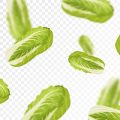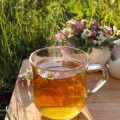Introduction to British Herbal Teas
Herbal teas have long held a cherished place in the heart of British culture, weaving together centuries-old traditions with the rhythms of daily life. In the United Kingdom, herbal infusions are much more than simple beverages; they represent a bridge between nature and wellbeing, reflecting both the wisdom of folk remedies and the gentle art of self-care. Rooted in the countryside’s abundant flora, British herbal teas draw from native plants such as chamomile, elderflower, nettle, and mint, each offering unique qualities that support balance and vitality. From afternoon gatherings to soothing bedtime rituals, these botanical brews carry cultural significance and offer moments of mindful connection. Exploring the history and tradition behind British herbal teas reveals not only their enduring popularity but also their evolving role in supporting holistic health in modern times.
Popular British Herbs and Their Healing Properties
Britain’s landscape is abundant with native herbs that have been cherished for centuries in both folk and traditional healing practices. These time-honoured botanicals not only form the foundation of many classic British herbal teas, but also offer a spectrum of health benefits rooted in the principles of natural balance and holistic wellbeing. Let us explore some of the most popular herbs found in British teacups, celebrated for their gentle yet profound healing properties.
Key Native and Commonly Used British Herbal Teas
| Herb | Traditional Uses | Health Benefits |
|---|---|---|
| Chamomile | Widely used since medieval times, often drunk before bed or during periods of stress. | Calms the mind, supports restful sleep, soothes digestive discomfort, and eases tension. |
| Nettle | A staple in countryside remedies; traditionally harvested in spring as a tonic for vitality. | Rich in minerals, supports detoxification, promotes kidney health, and helps reduce inflammation. |
| Elderflower | Commonly gathered from hedgerows; a favourite for seasonal teas to ward off colds. | Supports immune function, relieves symptoms of colds and hay fever, gently detoxifies the body. |
| Peppermint | Cultivated in cottage gardens; appreciated for its refreshing aroma and cooling effect. | Eases indigestion, alleviates headaches, relaxes muscles, and uplifts the spirit. |
The Wisdom of British Herbal Tradition
In traditional British herbalism, these herbs are more than mere ingredients—they represent a living connection with nature’s rhythms and cycles. Each plant is valued not just for its physical effects but also for its ability to harmonise the mind and body. For example, chamomile is viewed as a gentle ‘yin’ herb that calms excess heat or agitation within, while nettle is often seen as revitalising ‘yang’ energy after winter’s lethargy. Elderflower’s lightness helps clear stagnant energy associated with seasonal transitions, and peppermint is revered for opening energetic pathways and restoring clarity. By incorporating these local herbs into daily tea rituals, one can cultivate inner harmony in tune with the changing British seasons—an approach deeply rooted in both tradition and modern wellbeing.
![]()
3. Blending British Herbal Teas for Balance and Wellbeing
In the heart of British herbal tradition, the art of blending teas is much more than a matter of taste; it is a mindful practice that harmonises body and spirit. Drawing from centuries-old wisdom and modern holistic approaches, British herbalists have long understood that each herb carries its own unique properties, both in flavour and health benefit. The thoughtful combination of these botanicals creates bespoke blends that support physical vitality and emotional equilibrium.
The Philosophy Behind Herbal Blending
Traditional British herbalism emphasises synergy—the belief that herbs can work together to amplify their healing effects. For example, pairing calming chamomile with invigorating peppermint balances relaxation with gentle stimulation, making a blend suitable for easing tension while maintaining mental clarity. Similarly, nettle’s nourishing qualities can be softened by the sweet floral notes of elderflower, creating a supportive tonic for seasonal transitions.
Crafting Teas for Mind-Body Harmony
A well-crafted herbal tea blend acknowledges the interconnectedness of mind and body—a core tenet in both ancient and contemporary wellbeing philosophies. In practice, this means selecting herbs not only for their direct physiological effects but also for their influence on mood and energy. Lemon balm, for instance, is cherished in Britain as a nervine herb, gently uplifting spirits while soothing digestive discomfort. Blending it with rose petals enhances emotional balance and brings a subtle floral aroma that calms the senses.
Modern Perspectives on Holistic Tea Blends
Today, many Britons approach herbal tea blending as an act of self-care and mindfulness. Modern holistic practitioners encourage individuals to tune into their body’s needs—whether seeking grounding during stressful times or a refreshing lift after a long day. By combining traditional knowledge with personal intuition, anyone can create teas tailored to support their unique path to wellness. Ultimately, the ritual of blending and sipping herbal teas becomes a way to nurture harmony within oneself, echoing the natural rhythms of British landscapes and seasons.
4. How to Brew and Enjoy Herbal Teas the British Way
Brewing herbal teas is both an art and a ritual, especially in the context of British culture where tea is synonymous with comfort and social connection. Embracing traditional British practices while preparing herbal infusions not only enhances their flavour but also supports harmony between body and mind, echoing time-honoured holistic values.
Essential Steps for Brewing Herbal Infusions
To fully appreciate the unique benefits and delicate flavours of British herbal teas, follow these practical guidelines:
| Herbal Tea | Ideal Water Temperature | Steeping Time | Special Tips |
|---|---|---|---|
| Chamomile | 90°C (just off the boil) | 5-7 minutes | Add a slice of lemon for brightness |
| Nettle | 100°C (boiling) | 7-10 minutes | Brew with mint for a refreshing twist |
| Lemon Balm | 90°C (just off the boil) | 5-6 minutes | Sweeten lightly with honey if desired |
| Elderflower | 85°C-90°C | 5 minutes | Enjoy chilled as a summer cordial or warm with a splash of apple juice in winter |
| Dandelion Root | 100°C (boiling) | 10 minutes (covered) | Add cinnamon or ginger for extra warmth and digestive support |
Infusing Herbal Teas into Everyday British Life
The beauty of herbal teas lies not just in their healing properties but also in their ability to create mindful moments throughout the day. Here are ways to seamlessly incorporate these rituals into a quintessentially British lifestyle:
- Mornings: Start your day gently with a cup of nettle or dandelion root tea to awaken digestion and foster clarity.
- Afternoon Pause: Replace the classic builder’s brew with calming chamomile or lemon balm for a soothing break that refreshes both mind and spirit.
- Supper Wind-down: Enjoy elderflower or chamomile before bed, supporting restful sleep and emotional balance—an essential part of holistic well-being.
- Social Gatherings: Serve a selection of herbal infusions alongside traditional biscuits during afternoon tea, nurturing conversation and togetherness.
The Mindful Ritual of Brewing
Treat each brewing session as an act of self-care. As you steep your chosen herbs, breathe deeply, allowing their aromas to calm your senses. Whether enjoyed alone in quiet reflection or shared with loved ones, this simple practice fosters connection—to nature, tradition, and one’s own inner harmony.
5. Cautions, Contraindications, and Mindful Use
While traditional British herbal teas offer a wealth of health benefits, it is essential to approach their use with mindfulness and respect for individual constitutions. Herbal infusions such as nettle, elderflower, and chamomile are generally considered safe for most people when consumed in moderation. However, certain herbs may interact with prescribed medications or exacerbate underlying health conditions. For example, St John’s Wort—popular in the UK for mood support—can interfere with antidepressants and contraceptive pills, while liquorice root may elevate blood pressure if taken excessively.
Recognising Individual Sensitivities
Each person’s constitution is unique, echoing the holistic principle found both in traditional British herbalism and classical Chinese medicine. Those who are pregnant, breastfeeding, managing chronic illnesses, or taking regular medication should always consult a qualified healthcare provider before introducing new herbal teas into their routine.
Herb-Drug Interactions: A Gentle Reminder
Some beloved British herbs can influence the metabolism of pharmaceutical drugs. For instance, dandelion may enhance the effect of diuretics, while yarrow might potentiate the impact of anticoagulant medications. Always be cautious and seek professional guidance if in doubt.
The Art of Mindful Tea Consumption
Incorporating herbal teas into daily life should not be seen merely as a trend but as an ongoing practice rooted in self-awareness and harmony. Moderation is key; even the gentlest herbs can create imbalance if overused. Embrace tea rituals as moments to pause, reflect, and nourish both body and mind. By honouring these time-honoured traditions with discernment and balance, you can safely enjoy the restorative gifts of British herbal teas within a holistic wellness journey.


